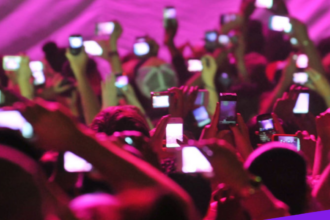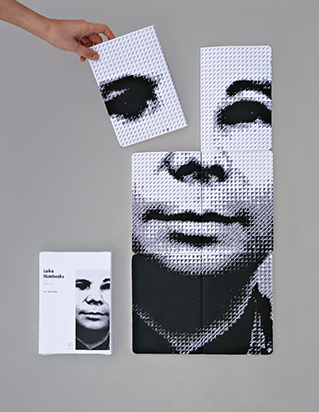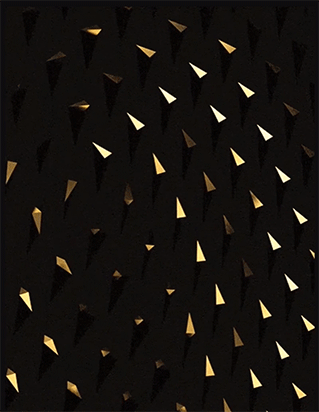Pride in Dance: Celebrating inclusivity and creativity 🌈
Dance music has long been intertwined with the LGBTQ + community, creating a powerful bond that has shaped the genre’s evolution and contributed to its global popularity.
From the disco era to contemporary electronic dance music, the LGBTQ+ community has played a significant role in pushing boundaries, promoting inclusivity, and nurturing artistic expression.
As we celebrate pride month, we reflect on the key milestones of dance music’s evolution and their influence from queer culture.
Disco: The Birth of Liberation
The rise of disco in the 1970s marked a pivotal moment for the LGBTQ + community in dance music. Nightclubs like New York City’s Studio 54 and Paradise Garage became sanctuaries for queer individuals, providing safe spaces where they could express themselves freely.
Disco music, with its infectious beats and glamorous atmosphere, resonated deeply with the LGBTQ + community, serving as a soundtrack for liberation and self-expression.
Iconic disco artists such as Donna Summer, Sylvester, and Grace Jones embraced their queer identities and, in turn, inspired generations of performers and producers.
House Music: A Queer Underground Movement
As the 1980s gave way to the 1990s, the underground house music scene began to emerge, finding its roots in marginalised communities, including the LGBTQ+ scene.
House music, with its pulsating rhythms and soulful vocals, offered an inclusive and diverse environment where all were welcome. Clubs such as Chicago’s Warehouse and New York City’s The Saint fostered a sense of unity and acceptance, paving the way for countless LGBTQ+ DJs, producers, and performers to thrive.
The legendary Frankie Knuckles, known as the “Godfather of House,” and Larry Levan, a prominent figure at Paradise Garage, became pioneering icons who shaped the genre and its connection to the LGBTQ+ community.
Safe Spaces and Festivals
The LGBT community’s impact on dance music extends well beyond the artist realm.
Festivals and club nights specifically catered to the queer community, such as Berlin’s infamous Berghain, Amsterdam’s Milkshake Festival, and San Francisco’s Folsom Street Fair, create safe spaces for expression and celebration.
These events showcase a wide range of electronic genres and provide an atmosphere where attendees can be their authentic selves, free from judgement or discrimination. By offering these spaces, the LGBTQ + community has fostered a sense of belonging and unity within dance music culture.
From the liberation of disco to the underground realms of house music, from the voguing balls of New York City to the rise of queer pop stars, the LGBTQ + community has been at the forefront of innovation and inclusivity. By fearlessly embracing their identities, challenging societal norms, and pushing creative boundaries, queer individuals have shaped dance music into a force for acceptance and empowerment
Pioneers: Past & Present
There are numerous influential LGBTQ+ DJs who have paved the way for inclusivity within the dance music scene. While it is impossible to cover all of them, here are a few notable figures:
- Frankie Knuckles: Widely regarded as the “Godfather of House,” played a crucial role in shaping the genre and its connection to the LGBTQ + community. His residency at Chicago’s Warehouse club in the 1970s and 1980s provided a safe space for marginalised communities, including the LGBTQ + community, to come together and celebrate music.
- Larry Levan: Another iconic figure from the early days of dance music, Larry Levan was a resident DJ at New York City’s Paradise Garage. Known for his innovative mixing techniques and eclectic music selection, Levan helped create an inclusive environment where all races, genders, and sexual orientations were welcomed and celebrated.
- David Morales: A Grammy-winning DJ and producer, David Morales has been an influential figure in the house music scene. Openly gay, Morales broke barriers and achieved commercial success while remaining true to his authentic self. His remixes and productions have graced dancefloors worldwide, and he continues to be a trailblazer for queer DJs.
- Honey Dijon: With her unique blend of house, techno, and disco, Honey Dijon has become a prominent figure in the contemporary dance music landscape. As a transgender woman and an advocate for LGBTQ+ rights, she has used her platform to promote inclusivity and challenge stereotypes within the industry.
- The Blessed Madonna: Marea Stamper, known professionally as The Blessed Madonna, has made waves in the electronic music scene. As an openly queer DJ and producer, she has actively worked towards creating safe and inclusive spaces for the community. Her eclectic sets and outspoken advocacy for diversity have solidified her status as a groundbreaking figure.
- Ellen Allien: A Berlin-based DJ, producer, and founder of BPitch Control record label, Ellen Allien has been a prominent figure in the techno scene. While not explicitly identifying as LGBTQ+, Allien has been an advocate for inclusivity and has spoken out against discrimination within the industry.
- Kim Ann Foxman: Kim Ann Foxman, formerly a member of the band Hercules and Love Affair, has established herself as a solo artist and DJ. As an openly lesbian artist, she has been vocal about her experiences and the importance of representation within the dance music world.
This summer you’ll find several big names appearing at pride festivals across the UK, including Honey Dijon at Brighton Pride, Fat Tony at Manchester Pride and Jodie Harsh at Birmingham Pride.
Also, whilst not officially ‘pride’ but during the month of June, Glastonbury boasts a huge queer line-up in the BLOCK9 and other nearby afterhours stages. Here you can catch Eats Everything, Sam Divine, Melé and many more!
Words: Eileen Rooney
Picture Credit: Honey Dijon








